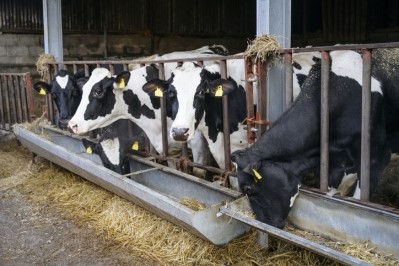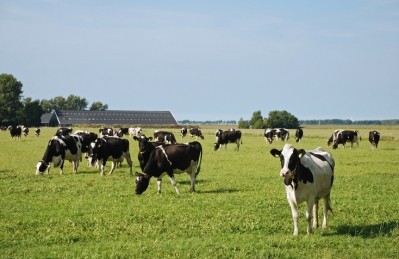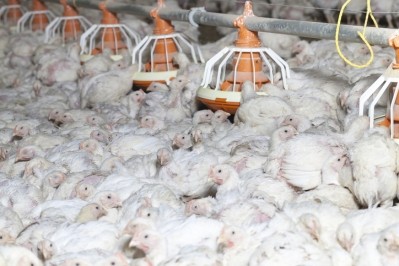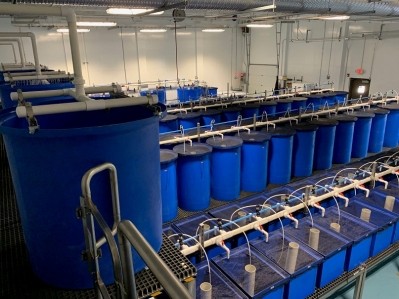Animal health, welfare and environmental challenges on ADM’s radar as it opens new Swiss lab
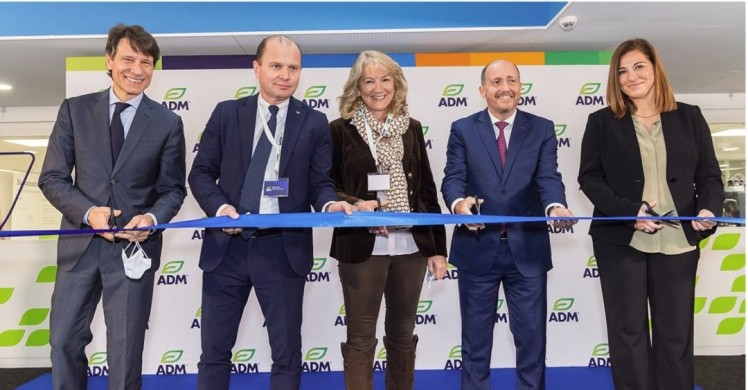
The lab, in the heart of the Swiss Food & Nutrition Valley, will support the development of science-based feed additives to meet customer needs for pet food, aquaculture and livestock species worldwide, said the agribusiness group.
The facility also enables the company to strengthen its base in the Europe, Middle East and Africa (EMEA) region, thereby centralizing its R&D activities in the area, said Pierre-Christophe Duprat, president of the animal nutrition division, ADM.
“The Rolle lab complements our existing R&D network of over 140 scientists and technicians while supporting our sustainability and responsible animal feeding efforts.”
Impact on metabolic performance
ADM’s research scientists, he continued, are continually exploring nutritional avenues for some of the most pressing issues in animal production, such as sustainability related challenges.
“When a novel feed additive demonstrates potential in addressing a specific challenge within the lab, our teams continue to investigate the capacity of this ingredient in practice.
“For instance, certain plant extracts have shown a positive effect on metabolic processes of ruminants, which can improve livestock performance in calf, milk and meat production that also minimizes environmental impact.
“With the support of robust in vitro and in vivo trials, our experts transfer these learnings into cutting-edge animal nutrition products that help livestock producers meet their economic and sustainability targets.”
Methane reduction
As regards the company’s efforts around methane emission reduction in ruminants, and enhancing feed efficiency across all species, he told FeedNavigator:
“Extensive research indicates that extracts from plants like spices and vegetables have a positive impact on rumen digestibility, which then reduces enteric emissions.
“We’ve also learned that a certain yeast additive supports a healthy gut microbiome for ruminants, swine and poultry, which also reinforces their immune systems without need for antibiotics.
“Improved feed efficiency becomes improved animal efficiency and improved environmental impacts throughout the value chain.”
Crossover between human and animal nutrition
In terms of promoting healthy microbiomes and digestion in animals with pro- and postbiotic products, Duprat said the company has been able to capitalize on its ‘leading’ position in both human and animal nutrition to generate insights.
“Synergy is achieved when we apply knowledge from one aspect of our business to another. For example, probiotics are commonly used in shrimp farming to reduce risk of disease and improve shrimp growth, while also minimizing waste and improving water quality.
“ADM has developed the first live probiotic-coated feed that helps regulate gut flora to improve digestibility and inhibit pathogen bacteria. This product is currently available to shrimp farmers in Southeast Asia, and we’re planning to expand this offering to meet the needs of aquaculture producers in other regions. Our researchers there will investigate new plant extracts, trace minerals, flavors and sweeteners for enhanced animal health and welfare.”
Animal welfare
Animal nutrition in also an effective tool to enhance the welfare of farmed animals and fish, he argues.
“We believe optimized animal nutrition is vital to enhancing the well-being and health of cows, poultry, pigs, shrimp and fish. Feed ingredients and additives have incredible capacity to support animal physiology with benefits as varied as biosecurity and stress reduction.
“Furthermore, ADM provides customers with nutritional and farm management services to improve animal welfare.
"The absence of hormones and antibiotics is a baseline standard in global livestock production. We believe stricter measures are necessary to demonstrate quality end products to consumers, including third-party certifications and descriptors like pasture raised, non-GMO and organic.”
Stress busters
Looking to products that could support the immune system to help dairy cows deal with stress and maintain milk production following calving, Duprat said the company has developed several proactive nutritional strategies and bioactive feed components to help cattle perform to their full potential.
“Research indicates that stress compromises the gut lining by disrupting nutrient absorption and increasing susceptibility to an overactive immune response.
"Additionally, extensive stress in heifers has shown to alter reproductive hormone levels, leading to breeding issues like depressed estrus cycles and/or early embryonic death.
“Vitamin and mineral supplements that complement existing feed resources can be added prior to a known stress event to give cattle nutrients that help their body respond quickly and minimize potential negative consequences. We can also replenish essential nutrients following a stress event to help the cow recover and return to a comfortable state.”
Gut health
The team, he said, is also focused on products that support gut health and improve growth performance.
“In mammals, robust gut microflora help break down feedstuffs into usable components and help deter harmful bacteria from establishing a population in the gut, thus supporting immune function.
"We offer the industry’s only Pichia guilliermondii strain, a whole cell inactivated yeast.
“Proactively incorporating yeast additives to feed maintains animal health while minimizing the need for reactive intervention practices. More specifically, recent research demonstrates that supplementing the gestation and lactation diets of sows and gilts with a P. guilliermondii-based feed additive promotes more piglets born, more pigs weaned, and overall heavier and healthier litters.
“Additionally, litters of supplemented sows required less treatments of scours, which may mean lower use of antibiotics.”

